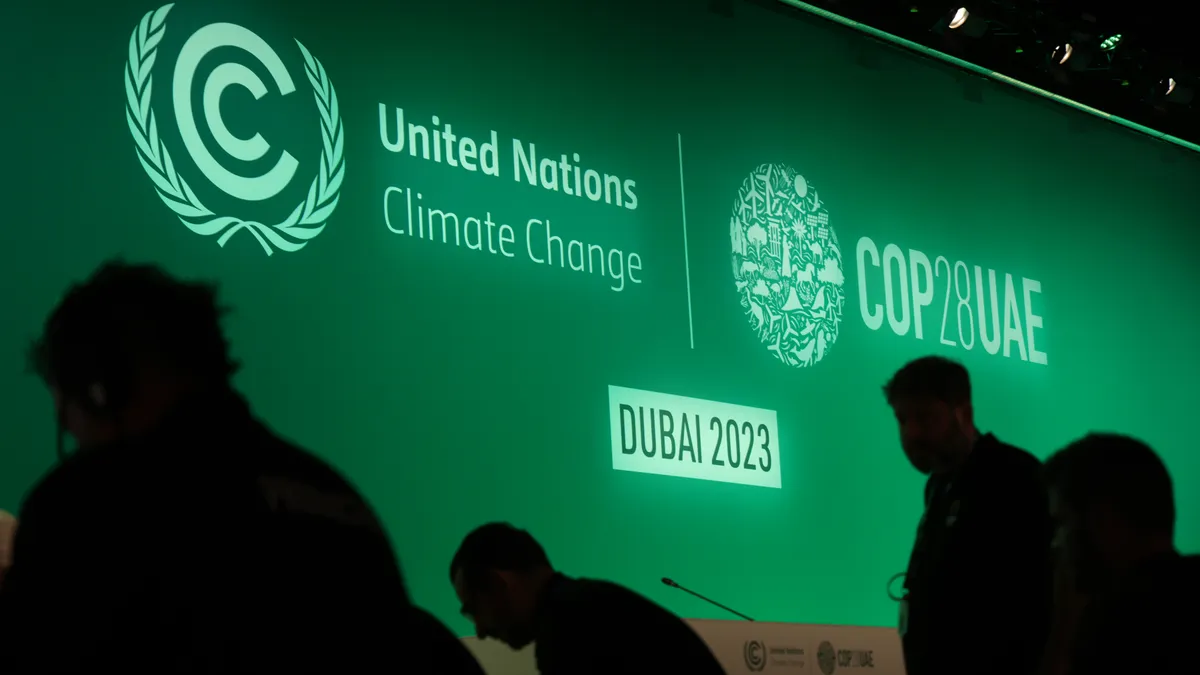The United Nations’ climate body released the latest COP28 draft agreement on Tuesday, exhibiting what the future of fossil fuels could look like, following negotiations with leaders attending the global climate summit. Proposals range from phasing out fossil fuels entirely to not discussing them at all.
The COP28 summit, which commenced on Nov. 30 in Dubai, is being attended by over 140 heads of state and senior government leaders and situated against a backdrop of increased discourse on climate change and decarbonization efforts — especially how countries are off-track from achieving the goals laid out in the 2015 Paris Agreement.
The second version of the draft text was unveiled by the United Nations Framework Convention on Climate Change and presented three options on the fate of fossil fuels. The first proposed an “orderly and just phase out of fossil fuels,” and the second pushed for “accelerating efforts towards phasing out unabated fossil fuels and to rapidly reducing their use” to achieve net-zero carbon emissions by or around 2050. The third option, however, was listed as “no text,” hinting at the intention of not having any limits or restrictions on fossil fuel consumption.
The latter is a stance that has been openly supported by Saudi Arabia and China. In an interview with Bloomberg’s television subsidiary on Monday, Saudi Arabia’s energy minister Prince Abdulaziz bin Salman said the state wouldn’t agree to a text that calls for the phasing out of fossil fuels, adding he was “absolutely not” pleased to have such language in the draft agreement.
“If [negotiators] believe that this is the highest moral ground issue, fantastic. Let them do that themselves,” he said. “We will see how much they can deliver, if they can deliver.”
China’s climate envoy Xie Zhenhua made similar comments in September, saying “completely eliminating fossil fuel energy is not realistic,” according to a translation provided by the Center for China and Globalization.
The COP28 draft text is labeled as matters relating to the Global Stocktake, a UN-backed global assessment of the progress made toward achieving the Paris Agreement goals, debuted at this year’s climate summit. The stocktake concluded 22 gigatons of greenhouse gasses must be removed within the next seven years to keep the 1.5°C goal within reach.
The draft agreement also proposed climate mitigation strategies, like globally scaling up zero and low-emission technologies by 2030. Focuses would include abatement and removal mechanisms, such as carbon capture, utilization and storage, and low-carbon hydrogen production. The text also called for tripling renewable energy capacity to 11,000 gigawatts by 2030 globally, compared to a 2022 baseline, and doubling the global average annual rate of improving energy-efficiency by 4.1% in 2030, compared to a 2022 baseline.
The proposals mirror strategies laid out by COP28 president-delegate Sultan Al Jaber and two renewable energy organizations earlier this year. The trio unveiled a roadmap to fast-track the energy transition, which also called for tripling renewable power and doubling energy efficiency by 2030.
The draft agreement also suggested a rapid phase out of coal power in this decade and an “immediate cessation of the permitting of new unabated coal power generation.”
All three climate-forward proposals, however, also had a contrasting “no text” option in the document, keeping the door open for negotiators not in favor of committing to such decarbonization efforts at all.
A final version of the agreement is expected to come out by the summit’s conclusion on Dec. 12, when a decision also needs to be made on where next year’s COP summit — with the presidency and host duties initially set to go to Russia — will be held.












